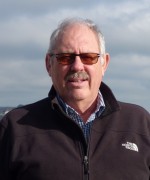Explore and Discover Rye
David Clarke
- Organisation:
- History Walks
- Region:
- South East
- Notice Period:
- Short (maybe less than one month's notice)
- Type:
- Professional
- Fee:
- Paid: £100 + reasonable travel expenses
- Category:
- History
- Updated:
- 10th April 2024
- Tagged:
- By Gone Days
Proud Rye, sat on a hill and Queen of all she surveys. An island kingdom, once surrounded by sea but the winds and the storms won a great battle and the sea retreated leaving the town marooned inland. Rye, with its medieval airs and cobbled streets, its history as a Cinque Port, the smugglers and its people, has been written about and photographed to distraction, after all, it is one of the most picturesque towns in England For centuries, Sussex’s poor roads had isolated Rye enabling it to remain unscathed from the developer’s whims that had changed many other south coast towns. By the time that the Turnpike roads arrived in the late 18th century and the railway in 1851, Rye’s charms within its citadel were secure and soon came to the attention of writers and artists seeking inspiration. There are museums, remnants of fortifications, galleries, old houses, pubs and coffee shops, literary connections and tales of smuggled brandy, tea and tobacco. This walk and talk will bring some sense to the orderly and disorderly streets, twitchels, passages and history but, be careful, for when not sailing the Spanish Main, that dastardly pirate Captain Pugwash may be watching you, home for a holiday to visit his creator, John Ryan.
Views: 2664 | Enquiries: 2About David Clarke
Whether it is a school talk, club meeting or group event, if you would like to find out a little more about the background to 1066, 1066 Harold's Way and other History Walks, David is an experienced and anecdotal speaker who will bring the history, walks and talks to life.
Talks will be tailored to meet your needs and fees, dates and presentation details will be discussed on enquiry.
David lives in St Leonards on Sea, East Sussex and walks, talks and writes about walking, local history and all things 1066.
He considers his membership of CAMRA, The Inn Sign Society, The Ramblers and the Long Distance Walkers Association to be a perfect match for walking and is the author and creator of 1066 Harold’s Way, a 100 mile long distance walk inspired by King Harold’s epic march to the Battle of Hastings, 1066.
Other Talks on SpeakerNet by David Clarke
- 1066 - King Harold's March from London - 1066 Harold's Way
- Walking the High Weald: Three Castles and an Ironmaster's House
- The Saxon Times - A Newspaper’s Review of 1066
- 1066 Duke William's March on London
- Explore and Discover St Leonards on Sea
- 1066 The Battle of Hastings - We Should Have Won
- 1066 Battles of Fulford Gate and Stamford Bridge
- 1066 The Saxon Times - Food, Drink and Agony Aunts
- Explore and Discover Winchelsea, East Sussex
- Explore and Discover Battle
- The Ogre of Brede
- The Weald of Kent Canal
Send a message to the speaker
If you are interested in this talk and wish to contact the speaker, please complete the following form:

